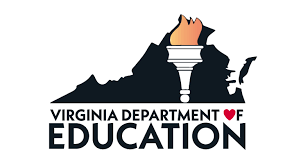African American Superintendent’s Advisory Council Issues Recommendations on Equity
A panel of education leaders tasked with envisioning an equitable school system for Virginia’s Black students has offered recommendations it believes will give those students better access to advanced classes and promote teacher diversity, among other improvements.
The African American Superintendent’s Advisory Council, a group of educators formed in September, found that in the 2018-19 school year, Virginia’s Black students were 22% of the state’s public school population. At the same time, Black students make up just 12% of gifted enrollment students. They found a 26% disparity between Black and white students in Advanced Placement and dual enrollment courses.
In a press release, the council recommended that the Virginia Board of Education include discipline disproportionality as an indicator in the state’s accountability system for local school divisions. It also recommended that the board create guidelines for best equitable practices at the state’s governor’s schools, an effort that Democrats in the state Senate killed during the General Assembly.
“As a result of deliberate, data-informed and transparent discussions, members of the African American Superintendent’s Advisory Council developed recommendations aligned to four critical domains that Virginia must address to advance racial equity,” Newport News Public Schools Chief of Staff Rashard Wright — who serves as the chair of the advisory council — said. “These recommendations include developing measurable plans to close the persistence of achievement gaps, close opportunity gaps that disproportionately impact Black students and other students of color, diversify Virginia’s educator force, and support professional development for administrators and educators focused on culturally inclusive and responsive competencies and equity-centered practices that disrupt intentional and unintentional racism in education.”
Below were some of the recommendations sent by the council:
Establishment of Board of Education model guidance on equitable enrollment procedures
for Governor’s schools and accelerated programs;
Establishment a single indicator or composite score related to school climate that includes
indicators related to antiracism and culturally responsive and inclusive learning
environments;
Incorporation of racism, racial equity and social justice in the Standards of Learning;
Establishment by the Board of Education of model policies on equitable enrollment
procedures for Governor’s Schools and other accelerated programs;
Requirement for the equitable distribution of experienced teachers among high- and low- poverty schools; and
Reconfiguration of school division boundaries and school attendance zones to promote
integration and advance equitable opportunities for all students.



